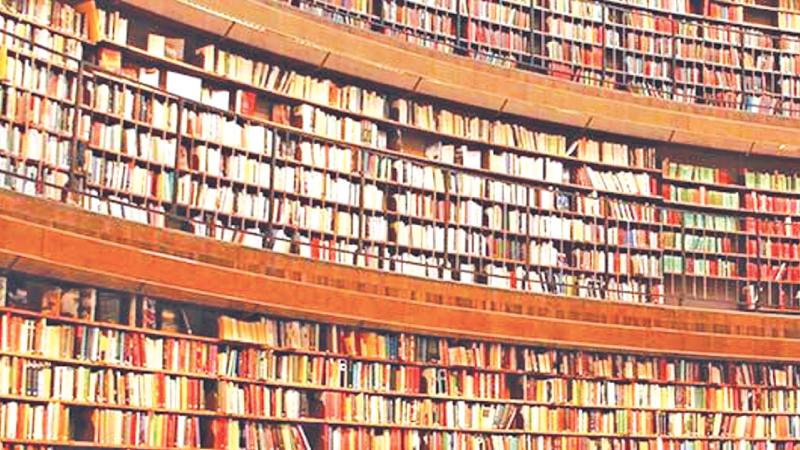
Fast reaching the 80th milepost in my life I have no regrets for giving up law for literature. In the 1960s there was a renewed interest in law, especially, to follow the Bachelor of Laws degree conducted by the University of Colombo. However, my love affair with law did not last long. I was attracted to literature like a duck to water. My parents and peers objected to my change of course saying that I could not get a lucrative job with a degree in English literature. But I could not change my destiny.
I am frequently asked how and in what ways literature makes people better. How does it help a person to achieve results in his career? Is it worth reading novels, short stories, poetry and drama? Then I hear Duncan, the King of Scotland, in William Shakespeare’s “Macbeth” making the following observation:
“There is no art
To find the mind’s construction in the face:
He was a gentleman on whom I built
An absolute trust.”
Understanding people
Duncan’s words remind me of life’s eternal problem of understanding people. The people who are supposed to be good turn out to be the scum of the earth. Most people are not what they appear to be. If not for literature, I would never have learnt one of the greatest lessons of life. Likewise, we discover much about the world and its people through literature. Those who read literature are aware that there are people who could dupe us at any moment.
De Quincey saw two types of literature: The literature for knowledge and the literature of power. The function of the first is to teach; of the second is to move. The first is a rudder, the second is an oar or a sail. The first speaks to the mere discursive understanding; the second speaks ultimately to the higher understanding of reason, but always through affectations of pleasure and sympathy.
Definition
There is another critical and practical use of literature. That is its ability to help us become better communicators. Great leaders such as the war-time British Prime Minister Sir Winston Churchill and our own S.W.R.D. Bandaranaike were well versed in literature. What is more, we live in an Age of Communication. Apart from the traditional tools of communication such as, books, newspapers, and magazines, we live in a world of expanding social media. However, we cannot create literature in a hurry. To write a novel or even a small poem, we have to think of a subject and reflect on it for a long time. What is produced in a rush will not form part of literature. That is why poems and short stories published in newspapers lack the necessary elements of lasting literature.
Literature has been defined in different ways by different people. The Longman dictionary of Contemporary English (New edition) defines literature as “Books, plays, poems etc. that people think are important and good.” In a way, it is somewhat a vague definition because we cannot go by the opinion of ordinary people. Another definition of literature says, it is a kind of shorthand for the transmission of feelings and thoughts. However, all our feelings and thoughts do not form part of literature.
A Chinese General who lived in the 10th century said, “Literature is heaven and hell trapped in cage.” What he meant was that literature helps us understand life. We not only learn how to read both, between and beyond the lines, we also learn how to communicate better. This view is correct because literature opens up a virtual storehouse of human experience.
X.J. Kennedy in his monumental work “Literature: A Introduction to Fiction, Poetry, and Drama” says, “Literature, in the widest sense is just about anything written. It is even what you receive in the mail if you send for free literature about a weight-reducing plan or a motorcycle.” According to him, literature is a kind of art, usually written, that offers pleasure and illumination.
Most students tend to agree that to read writers such as, William Shakespeare, Sophocles, Tolstoy or Anatole France is good for the spirit. However, those who do not wish to pursue a career in English teaching often wonder whether the study of literature is a waste of time. It is also not an obstacle to engage in any other profession. In most careers people often fail not because they do not understand their jobs, but because they do not understand the people they work with. To leap outside the walls of your ‘self’, to see through another person’s eyes – this is an experience that literature abundantly offers.
Tragedy
The tragedy in the modern age is that most students move like horses wearing blinkers. For many, the goals seem fixed: competent accountants, successful lawyers, innovative engineers and architects. All these people are needed by society. However, their attention to learn a single subject will eventually end up in a sense of deep dissatisfaction. Literature provides basic skills to any professional to be sensitive to the needs of other people.
Poetry especially, will help them to see the difference between a word that is exactly right and a word that is merely good enough. Mark Twain called it “The difference between the lightning and the lightning-bug.”
Let me end this essay with a few lines from a great poet Thomas Nashe:
“Beauty is but a flower
Which wrinkles will devour,
Brightness falls from the air,
Queens have died young and fair,
Dust hath closed Helen’s eye.
I am sick, I must die:
Lord, have mercy on us!”
In this poem, the poet strives for words that point to physical details and solid objects. The abstract subject ‘beauty’ has grown petals that shrivel. Brightness may be a general name for light, but the poet succeeds in giving it the weight of a falling body. This tiny poem spells the splendour of literature which is open for anyone to savour.
